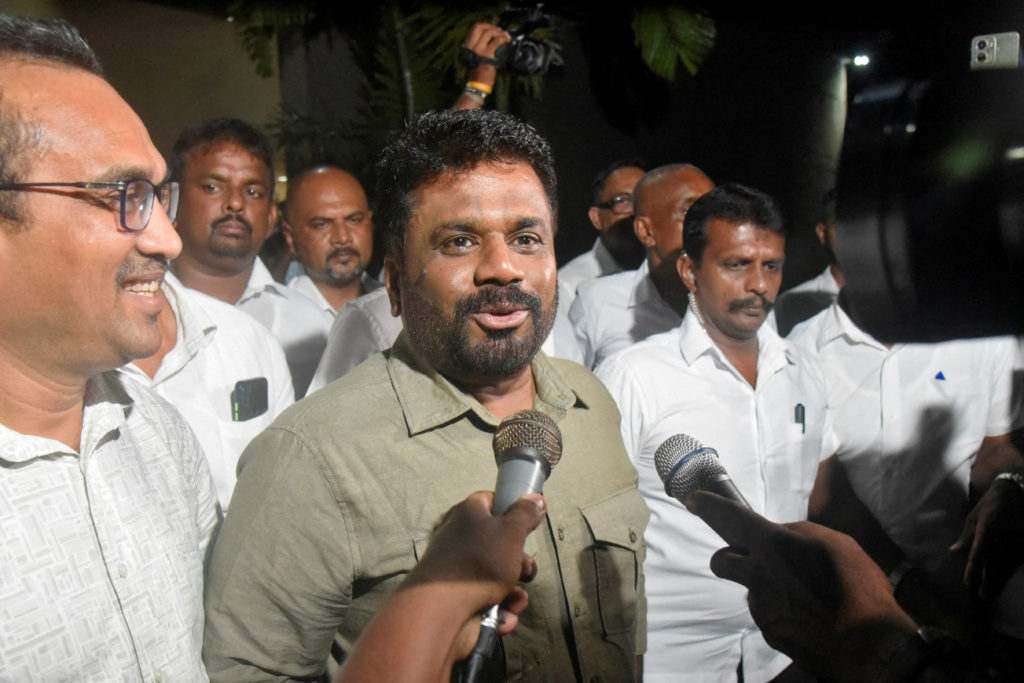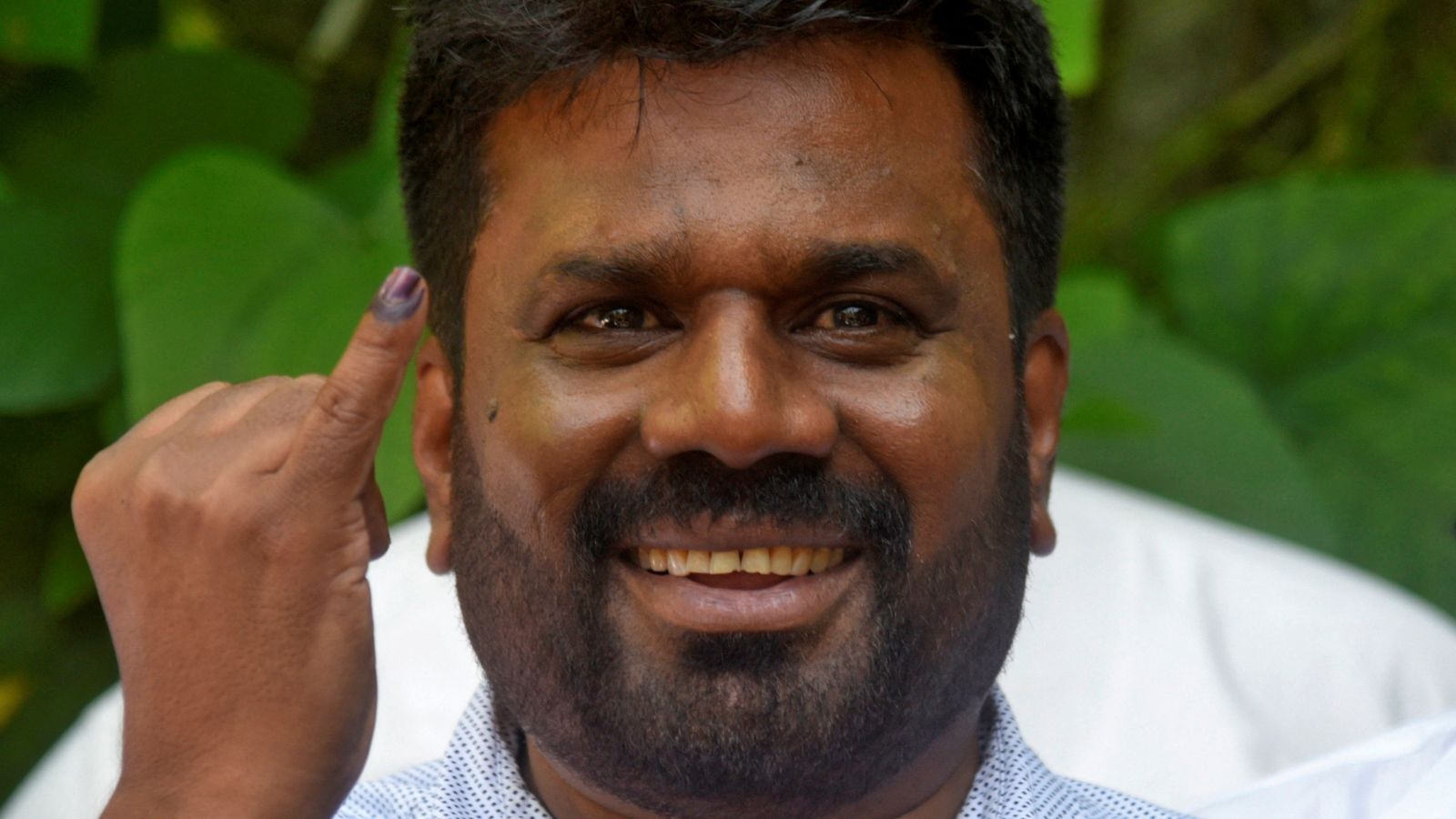Anura Kumara Dissanayake, a left-leaning politician, has been elected as Sri Lanka’s new president following the country’s first election since the severe economic collapse in 2022. He won in a historic second round, securing victory over opposition leader Sajith Premadasa, while outgoing president Ranil Wickremesinghe came in third.
Dissanayake, who had a minimal showing in the 2019 elections, has since gained support for his anti-corruption and pro-poor policies, particularly in response to the ongoing economic crisis. His win is seen as a response to public discontent and a desire for significant political change.
Dissanayake’s political journey began with his association with the Janatha Vimukti Peramuna (JVP), a Marxist political party that led a violent uprising from 1987 to 1989. Although the JVP’s actions during that time were marked by violence and unrest, Dissanayake has since expressed regret over the conflict.
He rose to leadership within the party and later led the National People’s Power (NPP) alliance, which has recently become a strong political force. Despite his association with a turbulent past, Dissanayake has positioned himself as a reformist candidate, emphasizing accountability and justice.
In the lead-up to the election, Dissanayake also addressed unresolved issues, such as the 2019 Easter Sunday bombings, which remain a source of frustration due to the lack of thorough investigation. He promised to reopen inquiries into the attacks and criticized the former government for failing to provide answers.

Anura Kumara Dissanayake Elected Sri Lanka’s President Amid Call for Reform After Economic Collapse
His rhetoric resonated with voters, particularly those tired of broken promises from the political establishment. He has highlighted the failures of previous governments in curbing corruption, worsening debt, and maintaining the rule of law.
Sri Lanka’s economic collapse in 2022, marked by soaring debt, inflation, and widespread public dissatisfaction, set the stage for Dissanayake’s success. The crisis exposed deep-seated corruption and governance failures, prompting a demand for fresh leadership.
While Wickremesinghe’s administration implemented economic reforms that improved some financial indicators, the public remained eager for a leader who could address the root causes of the crisis. Dissanayake tapped into this demand, portraying himself as a disruptor of the entrenched political elite and promising a clean slate for the country’s future.
Dissanayake’s economic policies, including tax cuts and increased welfare support, have drawn both support and concern. Many voters, burdened by austerity measures, welcomed his promises to reverse some of the government’s unpopular policies. However, some observers, including investors, worry about the potential impact on Sri Lanka’s fiscal recovery.
Dissanayake reassured critics that his reforms would be carefully coordinated with international bodies like the IMF. The new president now faces the challenge of balancing public expectations with the need for economic stability as he takes office with a strong mandate from the electorate.











































